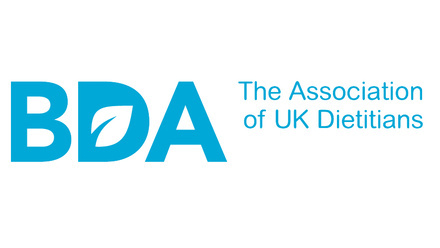People with learning disabilities (LD) experience significant physical and mental health inequalities and barriers to accessing good healthcare that put them at risk of disease and premature death(1, 2, 3, 4, 5, 6, 7, 8, 9, 10 - see references below) On average, the life expectancy of women with an LD is 27 years shorter and for men is 22 years shorter relative to the general population.8
The NHS Long-term Plan pledges to reduce health inequalities and NHSE has developed Improvement Standards for NHS Trusts to make changes in effectively meeting the needs of this population.11, 12 The latest data on specific health inequalities affecting the LD population is evidenced through the work of LeDeR and Public Health England.13,14 Nearly half of the inequalities listed on the PHE Learning Disability Profiles webpage relate directly to dietetics.
We know people with LD are at greater risk of being underweight and obese as well as having gastro-intestinal conditions including constipation and reflux – 15, 16 31% of men and 45% of women have obesity compared to 24% of men and 27% of women without a learning disability.17 Despite increased need, there are very few dietitians within community learning disabilities teams to represent and provide service.
The 2020 policy paper ‘Tackling Obesity’ acknowledges the fundamental influence that environment and information have on food choices.18 People with LD face additional aetiologies for obesity, over and above the rest of the population, creating complex challenges for the health and social care sector. Here we discuss the confounding factors which need to be addressed when providing effective weight management services for the learning disabilities population.
Capacity
By Briony Caffrey
“It’s their choice.”
The Mental Capacity Act says a person is unable to “make a decision” if they cannot understand, retain, use, and weigh up information and communicate their decision. Additionally, we should assume a person has capacity unless proven otherwise. This leaves the care sector in a difficult position when it comes to diet.
Service providers are expected to promote clients to make independent choices as much as possible and can be worried about “depriving someone of their liberty”. However, independent choice needs to be an informed choice. It is not acceptable to waive the provider’s duty of care and allow a client to make health compromising diet and lifestyle choices if that client is not in the position to make an informed choice and understand the associated risks.19 Indeed, this could be neglect or omittance of care.
When we see repeated poor food choices, and behaviours which increase risks associated with obesity, we need to ask, “does this person have capacity?” Capacity is time- and decision-specific. In this case, the question is, “does the person have capacity to make decisions relating to balanced eating to manage their weight and health risks?” To evidence capacity, the person needs to demonstrate their understanding of the relationship between diet, weight, and health.
Who is the decision-maker?
Mencap explains that “family, carers and support workers may assess capacity often and support people to make their own decisions” relating to diet.20 In this case, it is important to use accessible information, to see if they can understand their own weight and associated health risks; as well as the components of balanced eating, and its role in weight reduction.
However, if there are difficulties assessing or if there are additional complexities such as behaviours that challenge, then it would be best to refer for professional advice from the learning disabilities team dietitian.
Once the capacity assessment is completed and evidences a ‘lack of capacity’, the next step is to make a nutrition plan within a Best Interest meeting, and to talk through the detail of the person’s eating patterns, food access, social occasions, shopping trips, physical activity opportunities, weight monitoring and strategies to manage the obesity. In addition to the usual dietary approaches of weight management such as healthy swaps and smaller portions, there may be specific needs relating to staff training.
Staff Training
By Alex Larkin
Adults with a learning disability (LD) living in more restrictive environments (such as residential homes) are also more likely to be obese than the general population.21,22
The British Dietetic Association23 proposed that one of the factors contributing to higher levels of obesity within the LD population may be due to individuals’ “lower capacity to consume healthy foods due to poorer understanding and greater reliance on others for nutritional provision”. Whilst this is true, it has been shown that the vast majority of food choices are not made by the individual themselves, but by a carer/family member.24 Interventions need to involve family and/or carers as they are contributing significantly to the choice of food items consumed by those with LD.
Residential placement of adults with LD has transitioned in recent decades from institutionalised care, to care within the community.25 However, the staff supporting individuals with LD may not be appropriately knowledgeable in the specialist healthcare needs of this population group, and how best to support them to optimise their health.26 This issue is compounded when there is a lack of leadership from the provider organisations regarding diet and physical activity policies to ensure that staff are providing appropriate care in these areas.
Provider organisations have a duty of care to their clients to provide them with a health optimising environment, as defined within the Health and Social Care Act.27 They have a responsibility to meet individuals’ health needs and should ensure that staff are competent to meet these needs by providing training in health promotion (specific to this population group) and the Mental Capacity Act. Organisations have a responsibility to ensure that appropriate staffing levels and infrastructure are in place to enable individuals to meet physical activity and dietary recommendations, and their policies should provide guidance around the expectations of the organisation in terms of consistent promotion of healthy diet and physical activity.
It is imperative that carers are made aware of their responsibilities and duty of care in promoting and facilitating a healthy lifestyle. The involvement of carers can have a positive effect on weight-loss interventions for adults with LD.29,30 Furthermore, individuals with an LD may not feel motivated to make diet and lifestyle changes31 and therefore support and encouragement from carers is essential to success in achieving their health goals.
I ran a pilot intervention to assess the success of implementing a dietary intervention one step ‘upstream’ from our traditional dietetic interventions.32 I supported care homes to overhaul their standard menus to bring them in line with the Eatwell Guide and provided training for staff on diet, weight, portion sizes and mental capacity to make informed food choices. Sixty-seven per cent of overweight/obese residents lost weight, with 47% losing a clinically significant amount of weight. This intervention enabled one dietitian to improve the diets of 70 adults with LD, in a time- and cost-effective manner through large-scale food provision quality improvement. Ensuring that food provision in these care settings meets basic healthy eating guidelines would help to prevent and address overweight and obesity in this vulnerable population group, as well as promoting optimal health and wellbeing.
Mainstream Services vs Specialist Learning Disabilities Services
By Rachael Colley
Unfortunately, my answer is not the quick “yes” or “no” or “one page” justification often required by time stretched managers or commissioners – it is more complicated than that. Take, for example, the simple exhortation of “going for a walk” (an essential element of “moving more”). Unfortunately for many people with learning disabilities this is not simple at all. Even if someone can walk unaided, going for a walk locally often involves being accompanied – for reasons of safety or encouragement.
And who will that “supporter” be? There is probably a hidden army of suitable volunteers, but (i) where are they? and (ii) could they cope with the inevitable sit down protests (how else do you show you’re tired/had enough?) or the meltdowns or outbursts due to an unseen (to most of us) sensory stressor (such as the shadow of lamp post on the pavement)…?
Moving on to the generic “eat less” part of the equation and considering the oft asked question, “Are there additional factors that need to be considered and addressed?” let’s look at the framework of the Dietetic Diagnosis to see how it can help.
I think dietitians are very good in identifying the elements (found during our Assessment) that contribute to the existence and maintenance of the nutritional problem (e.g. historical and current excessive oral food and fluid intake). Dietitians are also very aware that they are not best placed to tackle each element. And in my experience that is often where any meaningful progress stops and will continue to stop, as long as other professionals/commissioners see weight management as a “dietitian’s problem”.
Any success (and I do have examples!) I have had in this field has come from the funding and flexibility of the specialist service to provide extra staffing. Sadly “success” has been short-lived when this “extra” staffing has been stopped. There needs to be a change in thinking from seeing this staffing as “extra” to realising it is “integral” reasonable-adjustment. To explain this further, I invite you to look at Table 1, which illustrates some of the elements involved – and suggests who can help. I hope that this will encourage any discouraged learning disability dietitians to keep going, trust that they can deliver the dietetic part of the solution, and help them to consistently and clearly communicate how the problem needs a multi-disciplinary approach.
Table 1: Aetiology examples and professional(s) who could help
|
Aetiology |
Who can help? |
|
Undiagnosed medical condition (e.g. hypothyroidism) |
GP and LD nurse |
|
Polypharmacy and medications increasing appetite |
LD psychiatrist and GP |
|
Poor nutritional knowledge of service-user |
LD dietitian and SLT |
|
Poor nutritional knowledge of “supporters” (e.g. family members, paid and unpaid carers) |
LD dietitian
|
|
Service Users and/or “supporters” having no knowledge or concern about obesity and the associated risks to health and wellbeing (now and in the future) |
LD dietitian |
|
Poor understanding of service-user capacity and what this means (legislatively and practically) for how “supporters” support. |
LD dietitian, SLT and possibly LD psychiatrist |
|
Package of Care not matched to service user’s needs |
Adult social care |
|
Delivered Package of Care not matching funded requirements |
Adult social care |
|
Lack of standards in care settings on menu planning, meal provision, training of staff |
CQC, DoH |
|
No understanding or treatment of sensory issues that are affecting food choice, food acceptability, mealtime environment |
LD OT
|
|
Poor opportunities for trying ‘new’ foods (e.g. different fruit and veg) in a supportive, safe environment |
LD OT and LD dietitian |
|
Supporters’ perspective on QoL, role of food (e.g. as a reward or showing love through foods high in fat and sugar) |
LD dietitian, LD psychologist
|
|
Supporters unable to buy ingredients, prepare or cook healthy meals due to lack of money, understanding, ability (e.g. ill health of elderly parents, un-trained staff) |
Adult social care? |
|
Supporters needing help to understand and manage “challenging behaviour” that results from changes (however potentially positive) to diet or routine |
LD nurse, LD psychologist
|
|
Service users and/or supporters having little confidence (combination of low self-esteem and/or self-efficacy) in implementing required actions |
LD dietitian, LD psychologist |
References
- Valuing People – A New Strategy for Learning Disability for the 21st Century; (Government White Paper 2001) (Department of Health, 2001)
- Treat me right! Better healthcare for people with a learning disability 2004 (MENCAP, 2004)
- Our health, our care, our say: a new direction for community services, 2006, (Department of Health, 2006)
- Death by indifference (Mencap 2007)
- Department of Health Valuing People Now: a new three-year strategy for people with learning disabilities (January 2009)
- Six Lives: the provision of public services to people with learning disabilities (Local Government Ombudsman ordered by The House of Commons March 2009)
- The Mazar’s Report. NHSE (2015)
- The Learning Disabilities Mortality Review – Annual Report 2018 Reports, Published: 21 May 2019 Author: HQIP
- Sue Turner, Carol Robinson. Improving Health & Lives: Learning Disabilities Observatory 2011. Health Inequalities and People with Learning Disabilities in the UK:
- CIPOLD Team 2013 Confidential Inquiry into premature deaths of people with learning disabilities
- NHS Longterm Plan 2019
- NHS England & Improvement 2018 The learning disability improvement standards for NHS trusts
- The Learning Disabilities Mortality Review – Annual Report 2020 Reports, Published: 2021 Author: HQIP
- Public Health England. Learning Disability Profiles [accessed: 6/10/21]
- Public Health England. Health inequalities: Overweight, obesity and underweight [accessed:6/10/21]
- Glover G & Evison F. (2013) Hospital Admissions That Should Not Happen: Admissions for Ambulatory Care Sensitive Conditions for People with Learning Disabilities in England Improving Health & Lives: Learning Disabilities Observatory
- Health and Care of People with Learning Disabilities: Experimental Statistics: 2014 to 2015. ( https://www.england.nhs.uk/ltphimenu/prevention/tier-2-weight-management-services/)[accessed 6/10/21
- DHSC 2020 Tackling obesity: empowering adults and children to live healthier lives
- Marshall, D. McConkey, R. Moore, G. (2003). Obesity in people with intellectual disabilities. The impact of nurse-led health screenings and health promotion activities. Journal of Advanced Nursing, 41 pp. 147–153.
- Mencap. What decisions can be made under the Mental Capacity Act? https://www.mencap.org.uk/advice-and-support/mental-capacity-act [accessed 6/10/21]
- Emerson, E. (2005) Underweight, obesity and exercise among adults with intellectual disabilities in supported accommodation in northern England. Journal of Intellectual Disability Research, 49 (2) pp. 134–143
- Robertson, J. Emerson, E. Gregory, N. Hatton, C. Turner, S. Kessissoglou, S. and Hallam, A. (2000). Lifestyle related risk factors for poor health in residential settings for people with intellectual disabilities. Research in Developmental Disabilities, 21 (6) pp. 469–486
- British Dietetic Association (2011). Weight Management for Adults with a Learning Disability Living in the Community: Consensus Statement. Birmingham: The British Dietetic Association.
- Hoey, E. Staines, A. Walsh, D. Corby, D. Bowers, K. Belton, S. Meegan, S. McVeigh, T. McKeon, M. Trepel, D. Griffin, P. and Sweeney, MR. (2017). An examination of the nutritional intake and anthropometric status of individuals with intellectual disabilities: Results from the SOPHIE study. Journal of Intellectual Disabilities,21 (4) 346-365
- Bigby, C. (2006). Shifting models of welfare: issues in relocation from an institution and the organization of community living. Journal of Policy and Practice in Intellectual Disabilities, 3 (3) pp. 147–154.
- Meijer, M. Carpenter, S. and Scholte, F. (2004). European Manifesto on Basic Standards of Health Care for People with Intellectual Disabilities. Journal of Policy & Practice in Intellectual Disabilities, 1 (1) pp. 10–15
- The Health and Social Care Act (2008) Regulation 14: meeting nutritional and hydration needs. Available at: https://www.legislation.gov.uk/uksi/2014/2936/regulation/14/made
- Fox, R. Haniotes, H. and Rotatori, A. (1984). A streamlined weight loss program for moderately retarded adults in a sheltered workshop setting. Applied Research in Mental Retardation, 5 pp. 69–79
- Fox, R. Rosenberg, R. and Rotatori, A. (1985). Parent involvement in a treatment program for obese retarded adults. Journal of Behaviour Therapy and Experimental Psychiatry, 16 pp. 45–48.
- Larkin, A. (2021). The effect of a food provision improvement strategy on the nutritional quality of the menu plans used within residential homes for Adults with Learning Disabilities, and on the weight of overweight and obese residents. Journal of Human Nutrition and Dietetics, 34 (Suppl. 1) p. 18.







